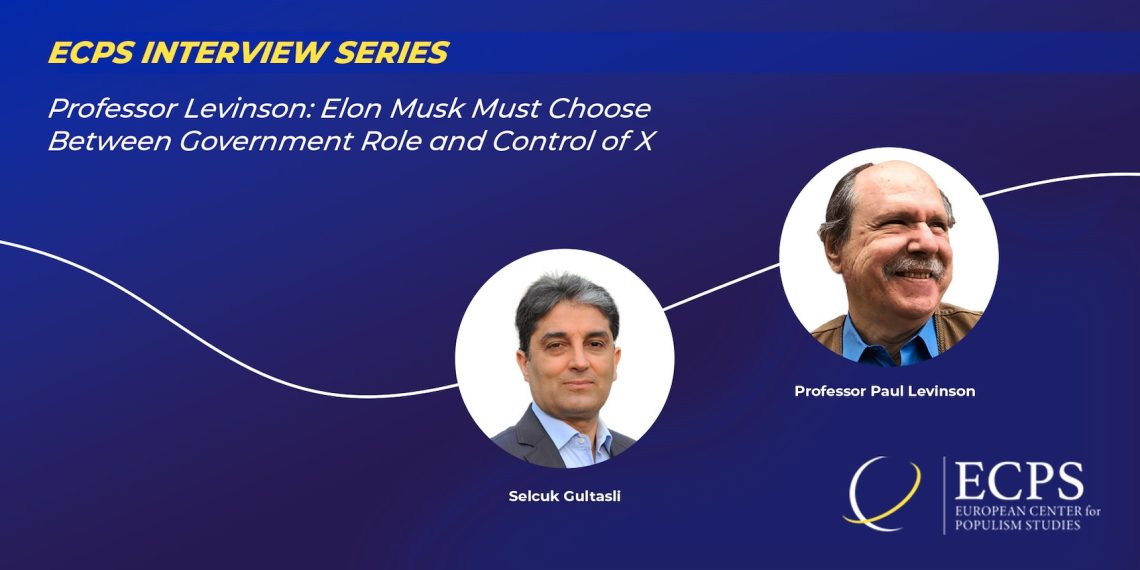Highlighting the dangers of overlapping corporate and governmental powers, Professor Paul Levinson cautioned, “I am deeply opposed to having the person who owns X also hold a high-ranking government position. That kind of overlap means the government could end up controlling communication platforms.” He elaborated on Musk’s ethical responsibility, stating that if Musk were a “true believer in free speech,” he would either divest from X or refuse a government post. However, Levinson expressed skepticism: “I think we both know he’s likely to do neither.” Levinson also voiced his deep concern for American democracy under a potential second Trump administration, describing it as “the worst threat to our democracy since the Civil War.”
Interview by Selcuk Gultasli
In a riveting interview with the European Center for Populism Studies (ECPS), Dr. Paul Levinson, Professor of Communication & Media Studies at Fordham University, discussed pressing concerns about the intersection of technology, politics, and democracy. Professor Levinson’s insights are especially timely, given Elon Musk’s rising influence as the owner of X (formerly Twitter) and his potential role in a second Trump administration. Highlighting the dangers of overlapping corporate and governmental powers, Professor Levinson cautioned, “I am deeply opposed to having the person who owns X also hold a high-ranking government position. That kind of overlap means the government could end up controlling communication platforms.”
Professor Levinson elaborated on Musk’s ethical responsibility, stating that if Musk were a “true believer in free speech,” he would either divest from X or refuse a government post. However, Professor Levinson expressed skepticism: “I think we both know he’s likely to do neither.”
Throughout the interview, Professor Levinson addressed the broader implications of concentrated power in technology. Despite concerns about billionaires like Musk or the owners of Facebook, Levinson pointed out that their influence has not yet stifled democratic impulses. “Social media provides a unique platform for individuals to disseminate the truth widely, even as it enables lies and fascism,” he noted, striking a balance in his evaluation.
On the issue of disinformation and algorithms, Professor Levinson argued that the negative impact of these technologies is often overstated. He acknowledged their role in targeted advertising, referencing Facebook’s data-sharing with Cambridge Analytica during the 2016 US election. However, he emphasized, “The blame lies not with the algorithms themselves but with the disinformation they are used to spread.”
Professor Levinson’s critique of governmental overreach was particularly sharp. Drawing historical parallels, he warned, “When governments gain such control, they can jeopardize democratic systems, even those that have existed for hundreds of years.” He cited the Thatcher administration’s suppression of unfavorable news during the Falklands War as a case study in the dangers of government-controlled communication.
Reflecting on Trump’s weaponization of "fake news," Professor Levinson described it as a hallmark of fascism, akin to tactics used by Stalin and Hitler. He lamented, “It amazes me how many people have fallen for this tactic, despite the lessons we should have learned from history.”
Professor Levinson shared his deep concern for American democracy under a potential second Trump administration, describing it as “the worst threat to our democracy since the Civil War.” From absurd appointments to calculated assaults on institutions, Professor Levinson’s insights underline the precarious state of democratic governance in the digital age.


